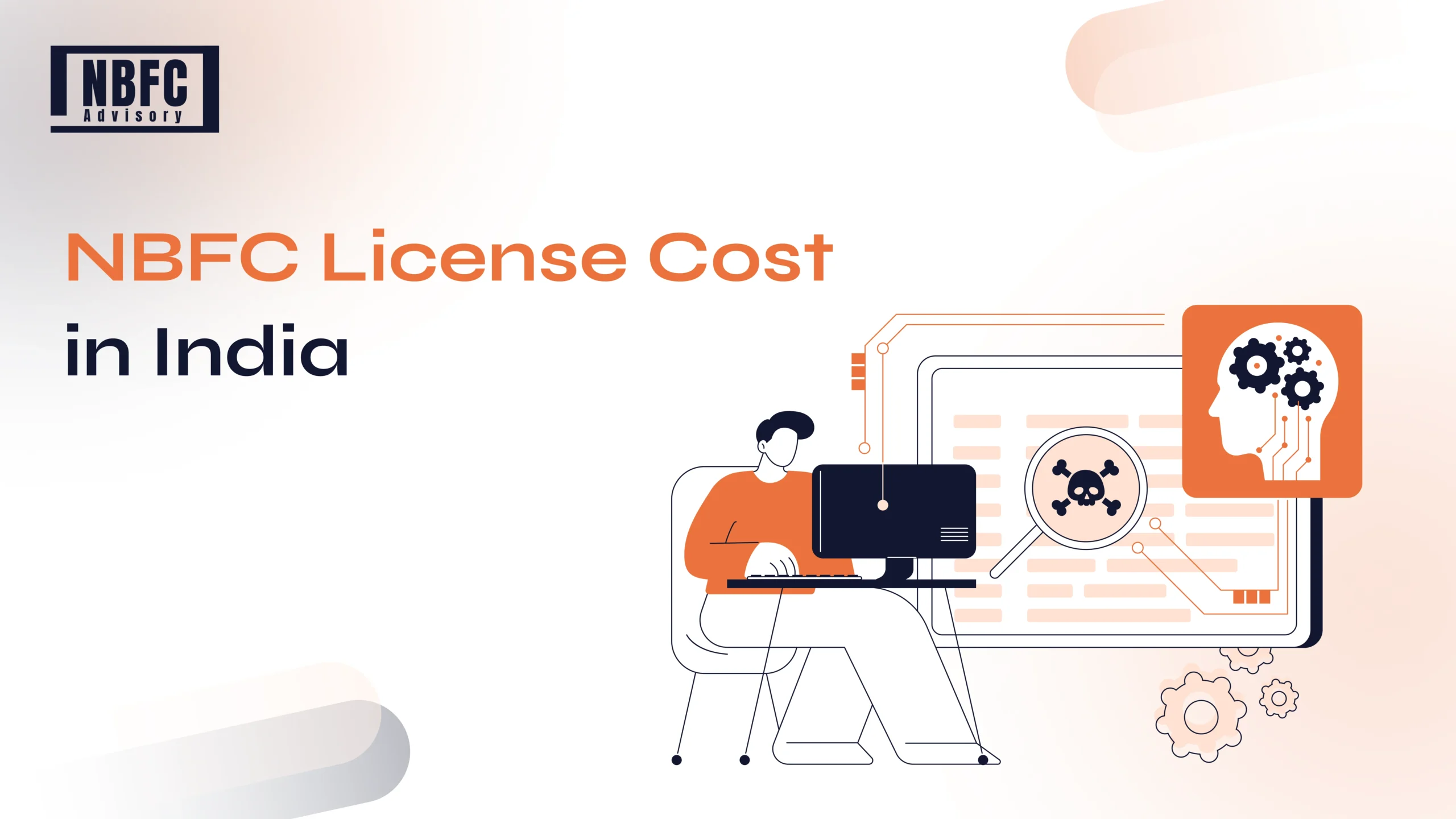The demand for credit in India keeps rising. More people need loans. More small firms need money to grow. In this space, Investment and Credit Companies play a crucial role. And one of the most active players in this category is the NBFC-ICC.
If you plan to enter the financial sector without a banking licence, an NBFC structure can be a strong starting point. And if your goal is lending or investment activity, an NBFC-ICC is the right fit. The model is flexible. The rules are clear. The opportunity is large.
This guide shows you how to register an NBFC-ICC. It tells you what you need, what rules have changed, and how to stay compliant after you begin. The facts here match the rules in place now. They also reflect the real problems new NBFC firms face when they start in India today.
What an NBFC-ICC Actually Is
An NBFC-ICC is an Investment and Credit Company that carries out lending, advances, and investment activity. It works like an NBFC, but with a sharp focus on credit flows. It does not take public deposits. It does not act like a full bank. But it offers financial services that meet real demand in the market.
Here’s the thing. The RBI created the Investment and Credit Companies category to group entities that lend money or invest in securities. When you register an NBFC-ICC, you enter a system that is regulated but still flexible. It lets you lend money to borrowers while keeping control of your capital and risk.
Many new firms choose the NBFC-ICC route because it is simpler than building a bank and more direct than other NBFC models. This makes NBFC-ICC one of the most popular categories of NBFCs in India today.
Why NBFC-ICC Registration Matters Today
The credit market is growing fast. MSMEs ask for loans that banks cannot approve due to strict conditions. Young borrowers seek quick credit. Digital lending is expanding. Here, the NBFC-ICC model has a strong advantage.
The structure allows:
- Faster loan processing.
- Tailor-made lending models.
- Digital-first credit operations.
- Controlled investment strategies.
What this really means is simple: Investment and Credit Companies fill the gap between banks and informal lenders. An NBFC-ICC lets you do this with legal backing and a clear compliance path.
With the new rules, the sector is cleaner. Weak NBFCs exit. Only serious players with solid capital enter. So a well-planned NBFC-ICC today has more room to grow.
Updated Regulatory Framework for NBFC-ICC Registration
To register an NBFC-ICC, you need to follow the RBI framework under the Scale-Based Regulation (SBR). These rules apply to all Investment and Credit Companies that seek a licence.
Here are the key conditions.
Company Incorporation
You must first create a company under the Companies Act, 2013.
Your firm can be a private limited company or a public limited company.
The name is not required to include “NBFC,” but many promoters choose branding that reflects their financial activity.
Net Owned Fund (NOF) Requirement
This is the biggest filter.
You need ₹10 crore in Net Owned Funds to start an NBFC-ICC.
This must be real capital, not borrowed funds.
Existing smaller NBFCs have a glide path to reach ₹10 crore, but new applicants do not.
If you apply today, you must meet the full requirement.
This ensures only strong and stable Investment and Credit Companies enter the market.
Business Plan
You must submit a detailed plan explaining:
- How the NBFC-ICC will lend or invest
- Sources of funds
- Target borrower segments
- Internal controls and risk systems
- Strategy for asset quality and recovery
- Future expansion or fintech integration
The RBI reads this closely. A weak plan brings delays or outright rejection.
KYC and Background Checks
All directors and shareholders must clear KYC, net-worth checks, and fit-and-proper criteria.
This is important because an NBFC-ICC handles credit risk.
RBI checks for integrity, experience, and financial discipline.
Digital Application Filing
The application must be submitted through the RBI portal.
After that, physical documents must be sent to the regional RBI office.
Compliance and Governance Setup
Even before approval, you must prepare:
- Audit systems
- Asset classification rules
- Risk management policy
- Board structure
- Internal reporting framework
Regulators want Investment and Credit Companies to show they can operate responsibly from day one.
Final RBI Approval
Once everything is verified, RBI grants the Certificate of Registration (CoR).
This process can take several months.
Only after receiving CoR can you start lending or investing as an NBFC-ICC.
Compliance Needs After You Register an NBFC-ICC
Running an NBFC is not only about lending money. You must follow ongoing rules.
These rules have become stricter, especially for Investment and Credit Companies that grow fast.
Let’s break it down.
Capital Adequacy
An NBFC-ICC must maintain a minimum Capital Adequacy Ratio (CAR) as per RBI norms.
Higher CAR protects your business from loan losses.
Asset Classification
Loans must be categorized as:
- Standard
- SMA
- NPA (after 90 days overdue)
As an NBFC-ICC, you must follow provisioning norms for NPAs.
Fair Lending Conduct
Every NBFC must follow the Fair Practices Code.
This applies to interest rates, loan approvals, and borrower rights.
Risk Management
The Investment and Credit Companies category now needs stronger systems for credit risk, operations, and market risk.
Statutory Returns
Periodic returns must be filed with RBI.
Any delay affects your compliance rating.
RBI Inspections
The regulator inspects NBFC-ICCs regularly to check financial health and governance.
Why Entrepreneurs Still Choose NBFC-ICC Over Other NBFC Models
Many entrepreneurs ask why they should pick an NBFC-ICC instead of another NBFC category.
The answer is simple.
Clear business freedom
An NBFC-ICC can lend, invest, or do both.
This gives more flexibility than many other NBFC types.
Strong market demand
Borrowers across India depend on Investment and Credit Companies for working capital, personal loans, and emergency funds.
Fintech compatibility
The digital lending space depends heavily on the NBFC-ICC model.
Most fintech lenders partner with an NBFC or become one.
Lower regulatory pressure than banks
You don’t take deposits, so your rules stay lighter than full banking rules.
Scalable structure
As you grow, you can move from the base layer to the middle or upper layer under the SBR framework.
This lets an NBFC-ICC expand in a structured way.
Common Challenges When Starting an NBFC-ICC
While the opportunity is real, new Investment and Credit Companies often face hurdles.
- Raising ₹10 crore NOF
- Building compliance systems
- Managing loan recovery
- Hiring skilled staff
- Designing a competitive credit model
- Understanding RBI reporting
These issues are manageable if handled early.
A well-planned NBFC strategy solves most of them before operations begin.
Tips for a Smooth NBFC-ICC Registration Journey
Here’s what helps most founders succeed:
- Finalize capital early
- Create a clean shareholding structure
- Prepare a realistic lending model
- Keep risk rules simple and strong
- Build your compliance team before applying
- Study how other Investment and Credit Companies operate
- Maintain transparent books and records
An NBFC-ICC is easier to build when the foundation is right.
The Road Ahead for Investment and Credit Companies
The next few years will see stronger rules and more digital monitoring.
But the demand for credit will keep rising, and NBFC players will meet that demand.
Investment and Credit Companies will grow as long as they maintain capital, control risk, and follow RBI rules.
A well-managed NBFC-ICC can scale across states, partner with fintechs, and serve thousands of borrowers.
If you plan carefully, this sector offers real potential.
Conclusion
Setting up an NBFC-ICC today is serious work, but the opportunity is worth the effort.
With the right capital, a solid plan, and strong compliance systems, your NBFC can become a trusted lender.
The market for Investment and Credit Companies is expanding, and RBI’s rules now support stable growth.
If you want a deeper guide—cost breakdown, timelines, required policies, board structure, or detailed RBI checklist—I can prepare that for you too.
Would you like a full NBFC-ICC documentation kit or a step-by-step registration roadmap next?
If you’re ready to set up your NBFC-ICC or want expert help with compliance, get in touch.
📞 Call NBFC Advisory: +91 93287 18979
🌐 Visit: nbfcadvisory.com
FAQs For NBFC-ICC
What is an NBFC-ICC and how is it different from other NBFCs?
An NBFC-ICC (Investment and Credit Company) is an NBFC that focuses on lending, advances, and investment activities. Unlike deposit-taking NBFCs, an NBFC-ICC cannot accept public deposits and operates with comparatively lighter regulations while still being fully supervised by the RBI.
What is the minimum capital required to start an NBFC-ICC?
The RBI mandates a Net Owned Fund (NOF) of ₹10 crore for new NBFC applicants. This must be owned capital—borrowed funds are not permitted.
How long does the NBFC-ICC registration process take?
On average, the RBI approval timeline ranges from 3 to 6 months, depending on documentation quality, promoter eligibility, capital clarity, and compliance preparedness.
Can a newly incorporated company apply for NBFC-ICC registration?
Yes. A newly incorporated private limited or public limited company can apply, provided it meets the capital requirement, fit-and-proper criteria, and has a detailed business plan.
Do I need physical office space before applying for NBFC registration?
Yes. RBI requires proof of a functional office address, along with basic infrastructure and policies in place, as part of governance readiness.
What are the major compliances after getting NBFC-ICC approval?
Post-registration, the NBFC must follow:
- Capital Adequacy Ratio (CAR) norms
- NPA and provisioning rules
- Fair Practices Code
- Statutory returns and RBI filings
- Regular audits and inspections
- Strong risk management and KYC systems
Can an NBFC-ICC operate digitally?
Absolutely. Most modern NBFC-ICCs operate through digital models and partner with fintechs. However, digital lending guidelines must be strictly followed.
What happens if my application is rejected by the RBI?
If RBI rejects an application, you can reapply after addressing the highlighted issues. However, capital and promoter eligibility concerns must be fully resolved before resubmission.




